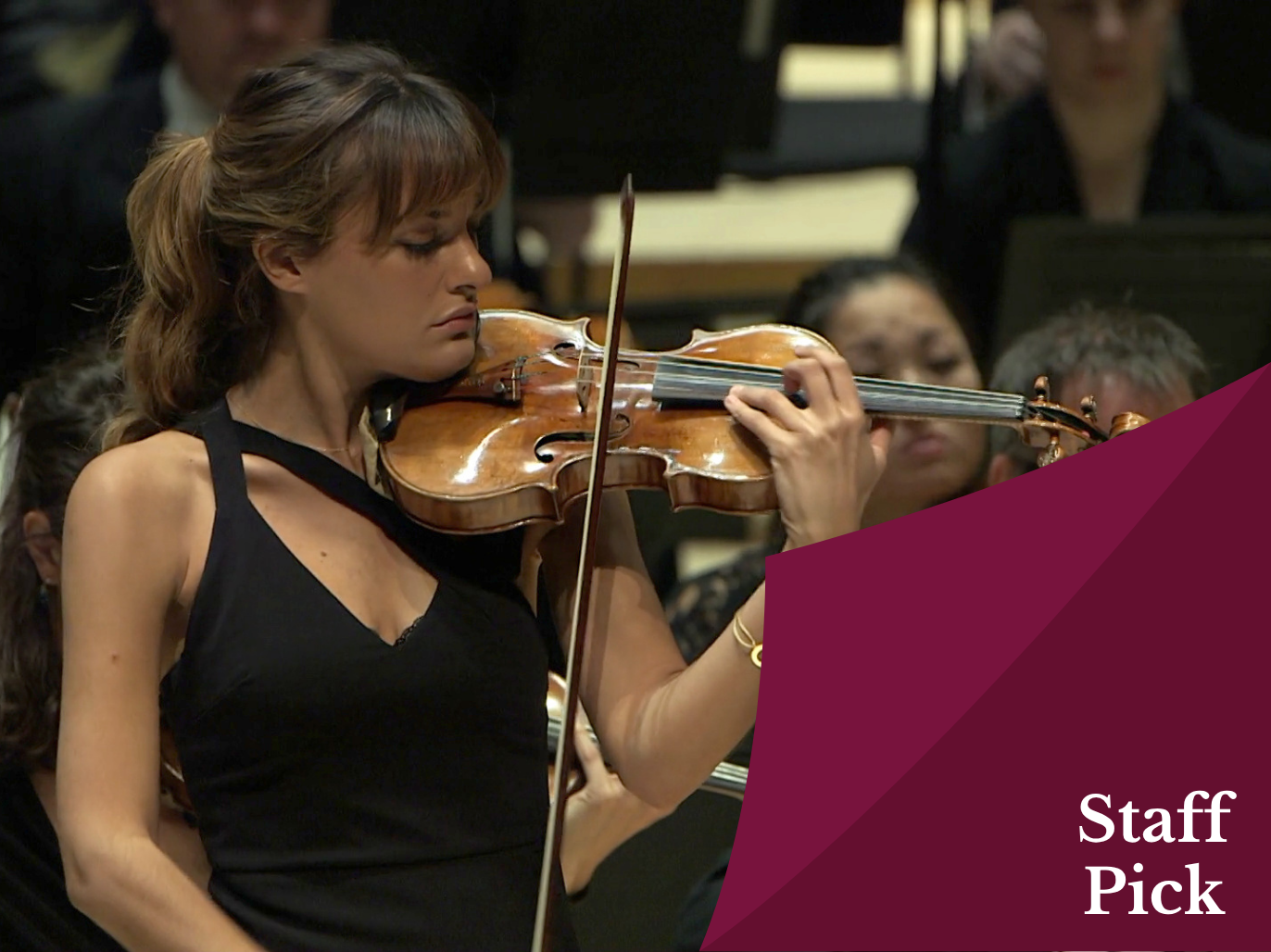As an amateur violinist who grew up in England, I—like many of my peers—have admired and followed Nicola Benedetti since her rise to fame after winning BBC’s Young Musician of the Year competition in 2004. She became known for her exquisitely lyrical and technically faultless renditions of works such as Ralph Vaughan Williams’s The Lark Ascending and Szymanowski’s Violin Concerto No. 1, both of which remain some of my favorite recordings of hers. Today, however, to commemorate 50 years since the death of Soviet-era Russian composer Dmitri Shostakovich, I invite you to experience Benedetti in a much more raw, unfiltered, and emotionally intense performance: Shostakovich’s Violin Concerto No. 1, with Gianandrea Noseda and the London Symphony Orchestra.
From the very first deathly quiet cello notes and the violin’s haunting melody, it is clear that this is a work imbued with history, anguish, and the true sentiments of an artist living under the oppression of Stalin’s regime. The Violin Concerto No. 1 was originally composed in 1948 but, given Shostakovich’s denunciation by the regime (and the Zhdanov Doctrine that punished artists and writers who did not adhere to strict regulations), the masterpiece couldn’t be published until seven years later, in which time Shostakovich revised the original score alongside violinist extraordinaire David Oistrakh.
Even with its solemn historic context and heartbreaking melodies, the concerto is spectacularly virtuosic and demands an expert command of violin technique, especially in the ferocious Scherzo of the second movement and dazzlingly complex extended cadenza of the third.
I can’t help but hold my breath when watching Benedetti attack the devilish Scherzo. She handles complex double-stopping and relentless speed with powerful assertiveness while remaining modest and showing no hint of ego. The violin becomes an extension of her person, as the music seems to come not just from the instrument but from her whole body. It is a breathtaking moment, both for us watching and for Nicola too, as the notes fly through her arms and fingers in an explosion of physical and emotional intensity.

